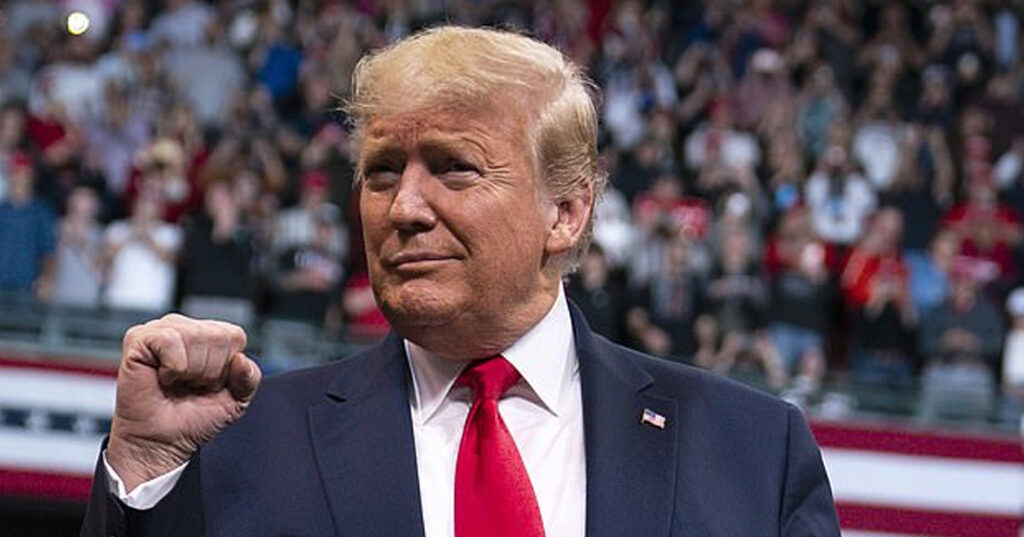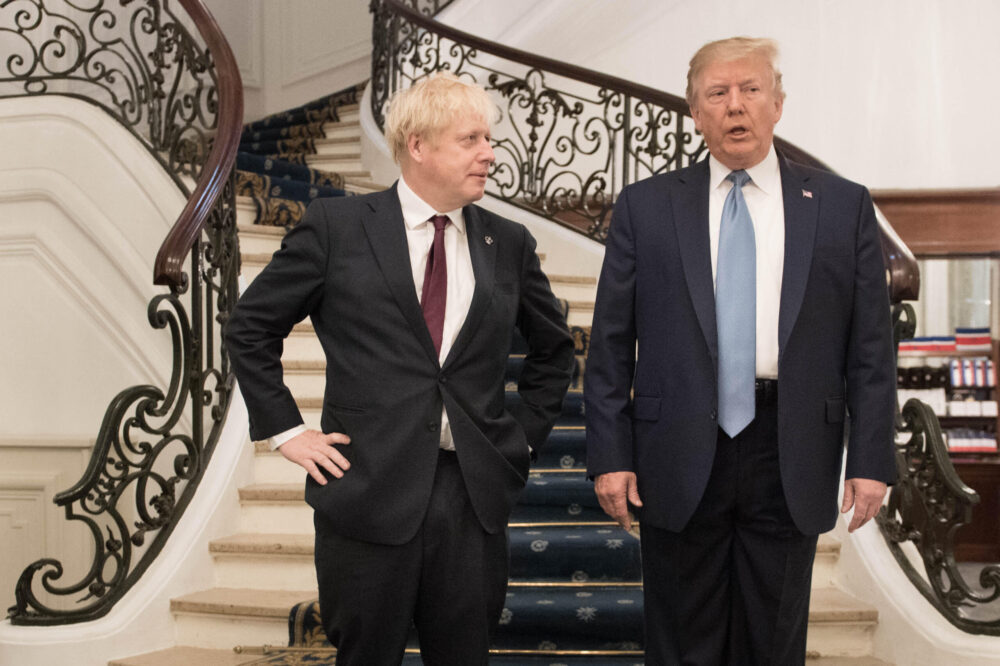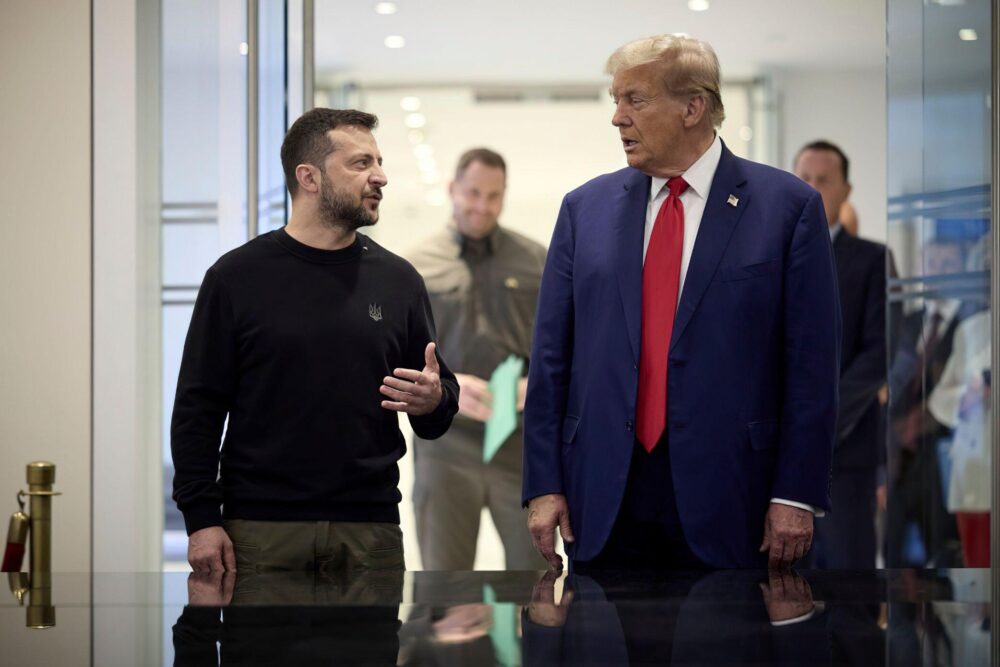
The latest edition of the Ashcroft In America podcast is here
It may be a “ridiculous” way to judge success, as Donald Trump tweeted last week, but a President’s record after one hundred days in office has become an important benchmark, and Trump reaches it tomorrow. We came to Texas – widely seen as the quintessential red state, but one which he won by a much narrower margin than Mitt Romney managed four years earlier – to find out what the voters made of the show so far.
“He’s right about everything”
Most of those who had voted positively for Trump in November retained their ardour. He was already delivering on jobs, “with Ford announcing they’re bringing back their plants”, and on immigration, though few thought the proposed border wall with Mexico was practical.
Most of all, they liked what they saw as a refreshing change in direction. People had been “sick and tired of the same old same old”; things had “got to where you couldn’t say Merry Christmas in America.” Indeed, a lady in one of our Houston focus groups told us, “he’s crude and rude, almost, but he’s right about everything. He was right about the jobs, being taxed too much, you know, we need to see it in our paycheck instead of taking it from us. We’re doing all the work and they’re just spending like nuts up there.”
“You’re supposed to be taking care of business”
One thing some of his supporters did find frustrating was President Trump’s approach to the job: “The man is his own worst enemy. He does something where at least Republicans would say OK, that’s a good step, something positive, and then he’ll go and put something on Twitter that makes him sound not so smart and kind of undo what he just did.” The President’s preoccupation with Twitter was a recurring theme. Some had hoped and expected him to calm down on this front when he took office: “When I saw that he was still tweeting and it was the same style and the same arrogance, I was like, OK, you’re not supposed to be tweeting, you’re supposed to be taking care of business.”
Some Trump enthusiasts were more forgiving (“it’s a process… he’ll become more presidential”), but others found his approach to government more troubling. “He flies off and flaps his gums about what he’s going to do before he even thinks about it properly, which is very scary;” “I figured he would be a bit more organized, at the least. If there was going to be a positive it was going to be organisation skills, was my assumption, and it seems to be absolutely not the case.” This left some wondering what might be around the corner: “It doesn’t sit well with the public, not knowing what’s going on and what’s going to happen, just sitting and holding on to the edge of your seat.”
Some saw the President’s failed attempt to repeal and replace Obamacare – a proposed reform bill was withdrawn in March when it became clear Congress would not pass it – as a symptom of chaos in the administration (“why was this piece of trash put forward to begin with?”) For most, though, Congress itself was to blame: “Trump’s been there a hundred days, Congress has had eight years since it was passed to come up with a better option.”
Karl Rove, who served as a senior adviser to President George W. Bush as well as masterminding his election victories, told me the Trump White House was more “free-wheeling” than the one in which he worked. The root of the problem was the difference between running a commercial real-estate empire and governing a country: “this is complicated, and I think he’s acknowledged that it’s far more complicated than he thought. Some of those skills he has as a real-estate developer – persuasion, schmoozing, trying to cobble together a deal, having flexibility and a sort of fluidity to his style, that’s helpful. But governing is tough work, and especially when it comes to dealing with Congress, some of the things you might do in a real estate deal, bark at the person across the table and threaten to walk away, when you’re President you can’t do that.” The question is, “how quick a learner is he to pick up some of the skills that are necessary to work in the kind of situation he’s in.”
For Julian Castro, a former Democrat Mayor of San Antonio who served in President Obama’s Cabinet and is talked about as his party’s potential nominee to take on Trump in 2020 (“I won’t take it off the table,” he told me), the Trump administration had failed to meet even his low expectations. Many Americans, he said, “at least hoped that President Trump would surround himself with folks that do have experience, that are first-rate, who know what they’re doing. But not only is he inexperienced and erratic and all over the place, he has also surrounded himself with folks who are similar, and that’s added up to a big mess.”
“Somebody has to be in charge, and it has to be us”
President Trump’s approach to foreign policy was summed up crisply by one of his keener voters: “‘Dad’s home’. Somebody has to be in charge, it has to be us, and that’s what he’s saying.” Accordingly, most supported the US air strikes in Syria following the Assad regime’s use of chemical weapons: “We had to get their attention. They’ll think twice next time”; “I think he’s showing them we’re not going to put up with any crap.”
Independent and Democrat voters often agreed that the decision had been right, but worried about how it had been arrived at, especially given Trump’s previous opposition to American involvement in the conflict: “I think it was justified. But at the same time, he didn’t really come out and say ‘this is why we did it, this is why I had to get involved’.” If Hillary Clinton had made the decision “I would be confident that she had taken all of her advisers’ opinions, whereas I swear Trump probably went ‘hey, let’s bomb Syria and see what happens!”
Few in our groups saw North Korea as a tangible threat to the US, though some favoured a pre-emptive strike just in case: “If there’s a way to do a very surgical strike on the missiles, the missile sites, and wherever they might have the nuclear weapons stored, that’d be a good thing.” Or indeed against Kim Jong Un himself: “The dude is crazy. He’s a nut. He’s asking for it.”


